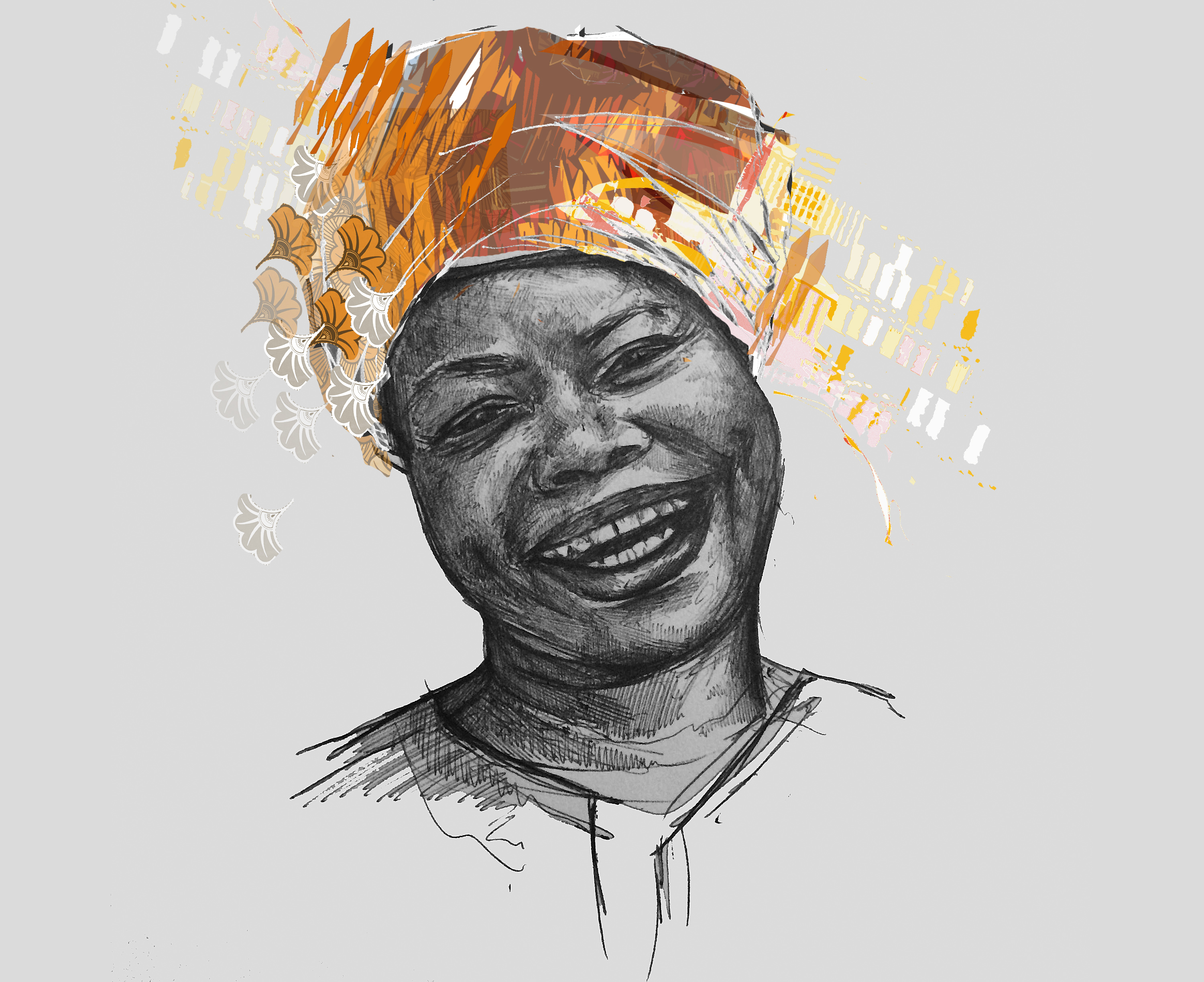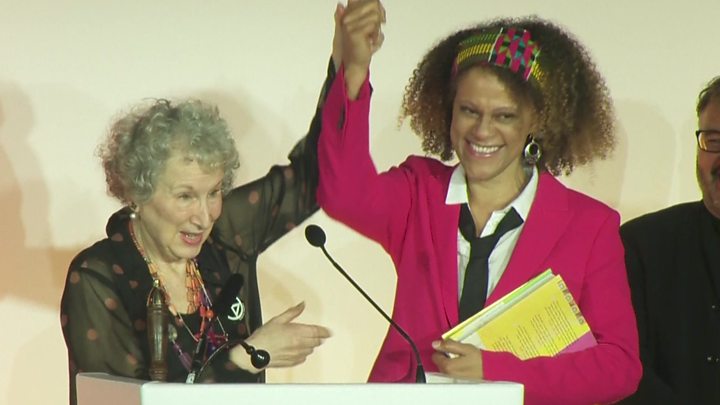
On Wednesday 25th January 2017, Nigerian author Buchi Emecheta passed away at the age of 72. There is so much to be said about Buchi and the impact she had on black British writing. I never had the honour of meeting her, but she is a true heroine of mine and an inspiration to my own writing. Her voice and sheer determination made her one of the first successful black British female authors and paved the way for other black British women. Emecheta’s greatest contribution to black British writing is the voice she gave to a community and the socio-political issues that marginalised them.
Whilst black writing had soared overseas in conjunction with the civil rights movement in America, its progress in Britain was much more gradual and largely lead by men. Despite this, Buchi Emecheta is up there with Samuel Selvon, Stuart Hall, Joan Riley (to name just a few) as a great pioneer of black British writing. While male writers covered topics of class and racism in mid-20th Century Britain, Buchi highlighted the plight of black women in Britain and the double-colonisation they faced. While intersectionality has become a buzzword for feminists today, Buchi approached the topic of misogynoir back in the 1970s. The struggle of black migrant women following the Windrush era, and the layers of oppression they faced were fluently articulated in Buchi’s writing. The social realities she depicted in her novels were felt by a large community of women, who being isolated in their own homes, workplaces and on the bleak streets of London, could finally feel some relief in knowing that they were not alone. Not only did she expose the racial, gendered and classist discrimination of 20th Century Britain, Buchi defied patriarchal structures within the Nigerian community, all whilst taking great pride in her culture and her blackness.
Racism in 20th Century Britain was a common experience felt keenly by non-white immigrants. Following the rising social and political angst surrounding people of colour, Asian, African and Caribbean immigrants joined together under the political term ‘black’, establishing a community that fought against the discrimination they faced from racist white Britons. Buchi’s writing was published during this revolutionary period and although she does specifically explore the dynamics within African communities in Britain, her concept of racial blackness (in opposition to racial whiteness) was a revolutionary act relevant to all women of colour living in Britain during the 1970s. And in the present day, with xenophobia on the rise over 40 years later, Buchi’s writing is as relevant as ever.
In 1960 Buchi and her husband moved to London, where they struggled to find housing due to racial discrimination by the majority of British landlords. In her autobiography Head Above Water (1986) she states:
“We arrived at the time when it was classy to advertise for tenants and print in bold red letters ‘SORRY NO COLOUREDS’. […] No respectable landlord wanted a black family. We realised that however well-educated we were, our colour which we had hitherto regarded as natural was repulsive to others and posed a great problem. Our hosts in our new country simply refused to see beyond the surface of our skin.”
Although the colour ban officially ended decades ago, this concept is still relevant to people of colour today. Regardless of how ‘well-educated’ we are, BME students continue to be overlooked for employment in certain industries based on the colour of our skin or the style of our hair. This is just one example of how the discrimination faced by our ancestors on arrival in Britain remains integral to the lives of second and third generation immigrants and our access to higher living standards. The racial tensions Buchi highlighted are still present in British society, just in subtly different ways. Nevertheless, Buchi made the best of every situation she faced, overcoming every obstacle society threw at her. She undertook a sociology degree whilst working and raising 5 children, while her husband did little to contribute to the household he ruled with violence. Their unhappy marriage is also explored in her writing, where she openly describes his abusive behaviour, adultery and lack of financial support to the maintenance of the family.
“But [he] refused to go to work! He had been used to staying home for too long, and regarded each day that he went to work as purgatorial. He insisted that he came to England to study, not to work for me to stay at home simply to was nappies, knit jumpers, and indulge in my lazy dreams.
To show him that I did not just stay at home to wash nappies and knit, I wrote my first book, The Bride Price. […] With great exuberance, I showed my ‘brainchild’ to my husband. He at first did not want to read the manuscript because, he said, ‘You don’t know much, so how can you write a story?’ Nonetheless, I pleaded with him to read it. He did so secretly and his reaction was to burn it.”
A strong and resilient woman, she continued writing. Writing gave her an outlet, a way to make sense of the inequalities and injustices she faced as a Nigerian woman in Britain. “I found it almost therapeutic. I put down all my woes. I must say that many a time I convinced myself that nobody was going to read them anyway, so I put down the whole truth, my own truths as I saw them.” Although her first manuscript was shamefully burnt by her husband, she didn’t let that stop her. Aged only 22 she left him and made a life for her children free from his abuse.
Bold, brave, defiant, and determined, Buchi Emecheta graced the world with her first novel in 1972. In the Ditch was composed of her columns on black British life written in the New Statesman and focused on issues of race, class and housing following her own experiences. Her second novel, Second-Class Citizen was semi-autobiographical and critiqued the gendered and racial bias black women faced in Britain. Published in 1974, this novel is one of my favourites and may be her most well-known text, out of the 20 novels she published during her life. Its exploration of blackness, the white gaze, and the development of the main character Adah’s sense of self is extremely powerful and continues to hold great relevance in contemporary British society. As the novel progresses Adah realises that black is beautiful. Whilst working in a library she immerses herself in black writing by revolutionary authors likes James Baldwin, drawing parallels with Buchi’s own experience working as a librarian. Adah overcomes the label that white British society places on her as a second-class citizen and embraces her blackness.
“She was different. Her children were going to be different. They were all going to be black, they were going to enjoy being black, be proud of being black, a black of a different breed.”
Second-Class Citizen begins with a dedication to Buchi’s children:
“To my dear children Florence, Sylvester, Jake, Christy and Alice, without whose sweet background noises this book would not have been written.” Motherhood is a common theme in her novels, being a topic for debate within Nigerian society, where it has links to identity and status within patriarchal familial structures. Her writing was an act of seizing power, redefining motherhood and what it meant to her. Having given birth to 5 children, Buchi understood all too well the weight that reproduction had in her culture.
Her novel The Bride Price was re-written following its cremation and became her third published work in 1976. This was the first of several texts where she explored the complexities of African tribal culture. Her writing condemned the patriarchal traditions of Nigerian society, as the leading female protagonists rebel against these structures and are punished as a result. Her depiction of women’s role in Nigerian society led to her being labelled as a feminist. At a time when feminism was perceived as a cause concerned only with the issues of white women, marginalising women of colour, Emecheta stated: “If I am now a feminist then I am an African feminist.” Her reverence for African heritage and folklore is demonstrated throughout her novels, and is embedded in their structure as she utilises African oral storytelling traditions. The tension between her respect for cultural customs and her criticism of patriarchal norms portrays the influence of modernity within her life and her writing.
Although her novel The Joys of Motherhood (1979) presented a bleak vision of motherhood in Nigerian society, with the main character sacrificing all for her children only to face bitterly lonely death, Buchi’s own experience was far from this. She took great joy in motherhood and never begrudged the efforts she took to provide for her children, keeping close contact with them throughout her life. Towards her later years Buchi and her son Sylvester ran the publishing house Ogwugwu Afor together, where she continued to publish her work. Reflecting on her life and writing career, Buchi’s autobiography ends with the following conclusion:
“Living entirely off writing is a precarious existence and money is always short, but with management and planning I found I could keep my head and those of my family, through God’s grace, above water.”
Buchi’s honest depiction of domestic abuse and her story of survival and success made her an inspiration to women of colour in Britain and around the world. I truly admired her positive outlook on life and the strength she exhibited in achieving her independence. She subverted the gender expectations others placed on her, completed her degree and made her dream of writing a reality. Without her diligence, black British writing would not have progressed at the speed it did during the end of the 20th Century, and although mainstream literature still lacks diversity, we would not have half as many contemporary writers of colour without the perseverance of writers such as herself. Her outspoken bravery is something which should be remembered, and something I will never forget.








